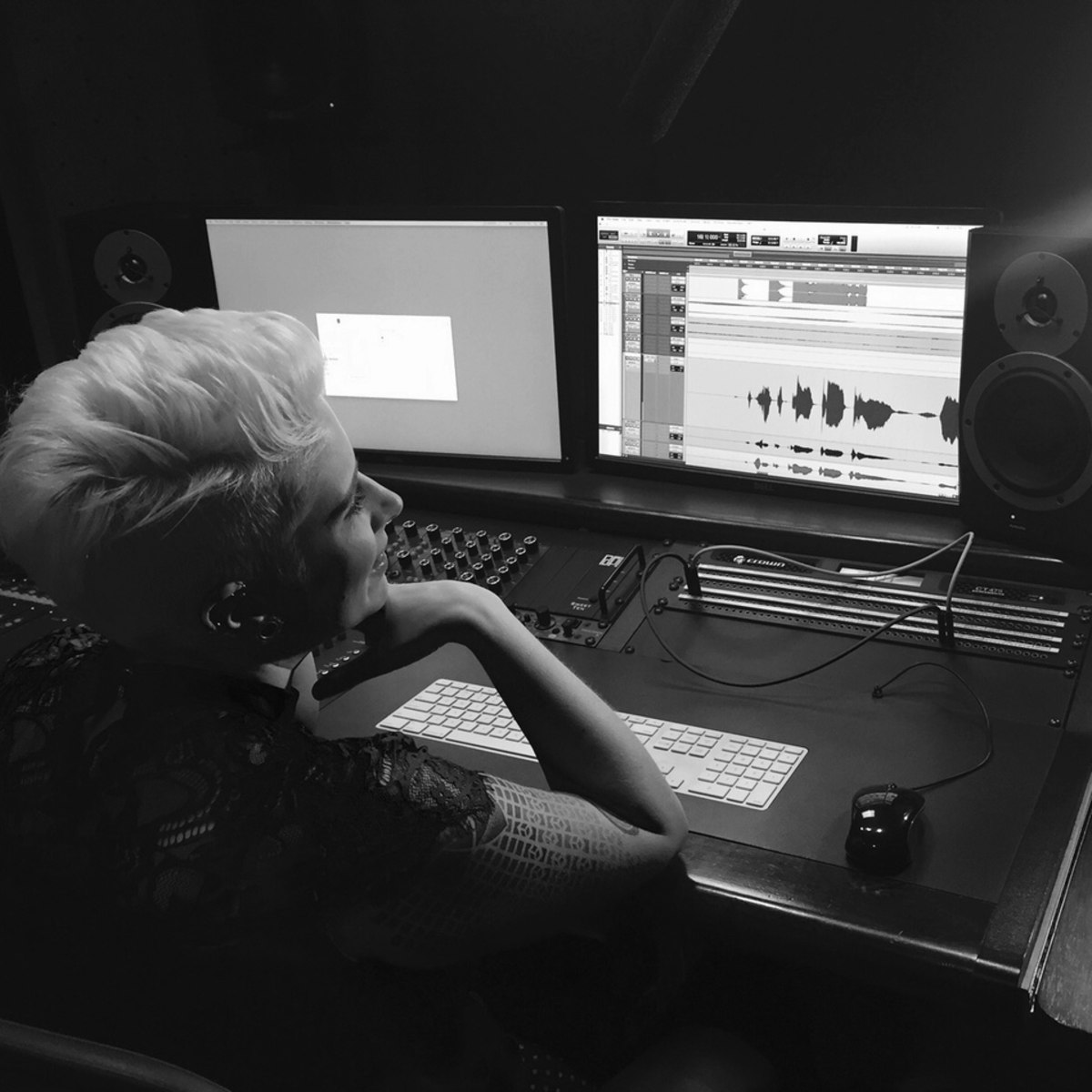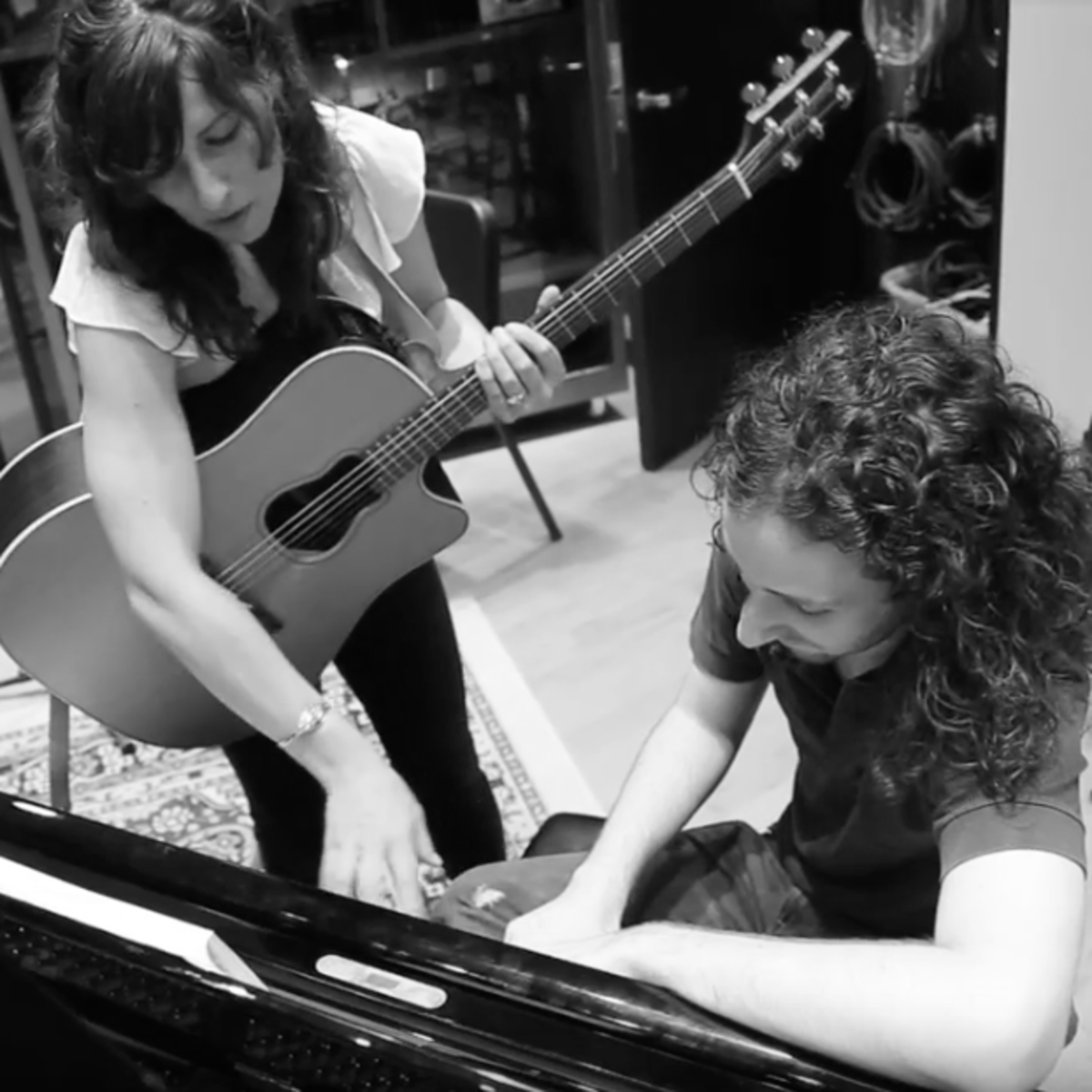Singer
Embarking on a Career as a Singer
A singer is an artist who uses their voice as their primary instrument to create music. They perform songs, either solo or as part of a group, bringing melodies and lyrics to life through technique and emotional expression. Singers work across a vast array of genres, from classical opera and choral music to pop, rock, jazz, country, and countless others, each demanding unique vocal styles and performance approaches.
Beyond the spotlight, singing professionally involves consistent practice, rehearsals, and often, collaboration with other musicians, songwriters, producers, and agents. It's a path that combines artistic passion with dedicated discipline. Many find the prospect of connecting with audiences through performance deeply rewarding, whether on a grand stage or in an intimate studio setting. The ability to convey stories and emotions through song is a powerful draw for many aspiring vocalists.
What is a Singer?
Defining the Role and Its Scope
At its core, a singer is a musician who uses their voice to produce musical sounds. This definition, however, only scratches the surface. Professional singers interpret music, convey emotion, and connect with listeners through their vocal performance. Their work spans live concerts, studio recordings, musical theater productions, advertising jingles, and backing vocals for other artists.
The scope of a singer's work varies significantly. Some specialize in a single genre, honing a specific style, while others cultivate versatility to perform across different musical landscapes. The distinction between singing as a hobby and pursuing it as a profession lies in the level of commitment, technical proficiency, and the business acumen required to navigate the music industry.
A professional singer dedicates substantial time to vocal training, practice, and maintaining vocal health. They often need skills beyond singing itself, including stage presence, understanding music theory, and sometimes, the ability to read music or play an instrument. It is a demanding career requiring both innate talent and rigorous development.
Primary Responsibilities
A singer's responsibilities extend far beyond the moments they are actually singing. Live performance is a major component for many, involving rehearsals, sound checks, and engaging with an audience on stage. This requires not just vocal skill but also physical stamina and stage presence.
Studio recording presents different demands. Singers must deliver precise and emotionally resonant vocal takes, often repeating passages numerous times to achieve the desired result. They collaborate closely with producers and audio engineers to capture the best possible performance, adapting to the technical aspects of the recording environment.
Beyond performing and recording, singers often manage the business side of their careers. This can include booking gigs, promoting their music through websites or social media, participating in interviews and photo shoots, and managing finances. Many rely on agents or managers to handle these aspects as their careers progress.
Continuous learning and practice are fundamental responsibilities. Singers constantly work to refine their technique, expand their repertoire, and keep their voice in optimal condition. This dedication is essential for longevity in a competitive field.
Key Differences Between Genres
The world of singing encompasses a rich tapestry of genres, each with distinct stylistic conventions and technical demands. Classical singers, including opera performers, often require extensive training in techniques like bel canto, focusing on projection, resonance, and vocal agility to perform without amplification in large halls.
Pop singers, conversely, frequently utilize microphones and focus on contemporary vocal stylings, clear diction, and connecting with relatable lyrics. Their performance might incorporate electronic effects and often emphasizes conveying personality and current trends. Jazz singers need strong improvisational skills, a sophisticated understanding of harmony, and rhythmic flexibility, often using techniques like scat singing.
Rock singers might employ techniques like belting or even controlled distorted sounds (often requiring specific training to avoid injury), focusing on energy and raw emotion. Musical theatre singers need versatility, blending acting with singing, and often requiring skills in multiple vocal styles depending on the show. Understanding these genre-specific demands is crucial for aspiring singers choosing their path.
These courses offer foundational techniques applicable across various popular genres.
Collaborative Roles
Singing is rarely a solitary pursuit. Most singers work extensively with others. Performing with a band involves tight coordination, listening to fellow musicians, and blending vocally and musically. Singers often collaborate with songwriters and composers, interpreting existing material or contributing to the creation of new songs.
In the studio, singers work closely with music producers who guide the recording process, offering creative input and technical direction. Audio engineers are also key collaborators, responsible for capturing and shaping the vocal sound. This relationship requires clear communication and trust.
For singers involved in musical theatre or opera, collaboration extends to directors, choreographers, conductors, and fellow cast members. They must integrate their vocal performance within the larger context of the production. Even solo artists rely on a network of support, including managers, agents, publicists, and vocal coaches.
Historical Evolution of Singers
Origins in Cultural and Religious Traditions
Singing is one of humanity's oldest forms of expression, deeply rooted in cultural and religious practices worldwide. Early societies used song for storytelling, rituals, work chants, and communal bonding. Vocal music played a central role in ancient religious ceremonies, from Greek hymns to Vedic chants, serving as a means to communicate with the divine or express collective faith.
Troubadours and minstrels in medieval Europe carried musical traditions, performing epic poems and folk songs. The development of polyphony in sacred music during the late Middle Ages and Renaissance laid groundwork for complex choral singing. These historical roles established the singer as both a community voice and a specialized artist.
Different cultures developed unique vocal traditions and aesthetics. From the intricate melismas of Middle Eastern music to the powerful throat singing of Tuvan traditions, these diverse practices highlight the voice's expressive potential and its integral place in human culture long before modern recording technology.
Impact of Technology
The invention of sound recording in the late 19th century revolutionized the singer's role. Suddenly, performances could be captured and disseminated widely, creating new opportunities but also changing performance expectations. Microphones allowed for more intimate vocal styles, shifting away from the projection needed for unamplified performance.
The development of multi-track recording enabled singers to layer vocals and experiment with harmonies and effects in ways previously impossible. Technologies like equalization, compression, and reverb became integral tools for shaping the recorded voice, influencing vocal aesthetics across genres.
More recently, digital technologies like Auto-Tune have generated both creative possibilities and controversy. While allowing for pitch correction and unique vocal effects, they also raise questions about authenticity and the definition of vocal skill. The rise of home studios has democratized music production, enabling singers to record and release music independently.
Understanding the technology behind vocal recording is increasingly important for singers. These courses provide insights into modern recording techniques and tools.
Shifts in Societal Perceptions
Societal views of singers have evolved dramatically over time. In many early cultures, singers held respected roles as keepers of tradition or spiritual leaders. During periods like the European Renaissance and Baroque eras, highly skilled singers, particularly in opera, achieved considerable fame and patronage.
The rise of popular music genres in the 20th century, facilitated by radio and recording, created the modern "pop star." Singers became cultural icons, influencing fashion, attitudes, and social discourse. Figures like Frank Sinatra, Elvis Presley, and The Beatles achieved unprecedented levels of global fame.
However, perceptions can be complex. Singers sometimes face stereotypes or assumptions about their lifestyle or artistic depth. The value placed on technical skill versus perceived authenticity or commercial appeal varies across genres and audiences. The digital age further complicates perceptions, with online personas and social media presence becoming intertwined with a singer's public image.
These books explore the cultural context and study of popular music.
Key Eras in Vocal Music
The history of singing can be viewed through distinct eras. The Baroque period (roughly 1600-1750) saw the flourishing of opera and oratorio, demanding virtuosic vocal technique and dramatic expression. The Classical era (c. 1750-1820) emphasized clarity, balance, and elegance in vocal lines.
The Romantic era (c. 1815-1910) brought heightened emotional intensity and larger orchestras, requiring singers (especially in opera) to develop more powerful voices. The early 20th century saw the birth of recorded popular music, with blues, jazz, and Tin Pan Alley singers shaping new vocal styles suited for microphones.
The mid-20th century marked the explosion of rock and roll, soul, and folk music, each bringing distinct vocal approaches – from energetic shouts to soulful melismas and narrative clarity. Late 20th and early 21st-century pop, hip-hop, R&B, and electronic music continue to innovate, blending genres and incorporating technological effects into vocal performance.
Explore the history of specific genres through these courses and books.
Core Skill Requirements for Singers
Vocal Techniques
Mastering vocal technique is fundamental for any serious singer. This begins with proper breath control, often utilizing diaphragmatic breathing to support the voice efficiently and sustain notes. Correct posture is equally vital, ensuring an open vocal tract and minimizing physical tension.
Achieving accurate pitch accuracy (singing in tune) requires diligent ear training and coordination between the brain and vocal cords. Developing vocal range involves exercises to access both lower and higher notes comfortably and healthily. Resonance, or the quality of the sound, is shaped by how singers use the spaces in their head, throat, and chest.
Clear diction and articulation ensure lyrics are understandable. Different techniques are emphasized depending on the genre, but these core elements provide the foundation for vocal health, stamina, and expressive capability.
These books offer comprehensive insights into vocal technique.
Performance Skills
Technical proficiency alone doesn't make a compelling singer; performance skills are crucial for connecting with an audience. Stage presence involves how a singer carries themselves on stage – their posture, movement, and confidence – which significantly impacts the audience's perception.
Effective audience engagement means making listeners feel involved in the performance. This can be achieved through eye contact, expressive gestures, and conveying the emotion of the song authentically. Interpretation involves understanding the lyrics and music deeply and communicating that meaning through vocal nuance and expression.
Handling performance anxiety is another key skill. Many performers experience nerves, but learning techniques to manage anxiety allows them to perform effectively under pressure. Whether in a small club or a large concert hall, strong performance skills elevate a technically sound singer into a captivating artist.
Adaptability Across Genres and Languages
While specialization is common, adaptability can significantly enhance a singer's opportunities. Being able to navigate different musical genres requires understanding their specific stylistic conventions, vocal techniques, and rhythmic feels. A singer comfortable in both jazz and pop, or classical and musical theatre, has broader career potential.
Singing in different languages also opens doors, particularly in genres like opera, classical art song, or world music. This requires not only learning pronunciation but also understanding the nuances of phrasing and expression specific to each language.
Even within a single genre, adaptability is valuable. Singers may need to adjust their style for different songs, collaborate with artists from diverse backgrounds, or interpret familiar material in fresh ways. This flexibility demonstrates musical intelligence and professionalism.
Developing your vocal confidence and exploring pronunciation can aid adaptability.
Basic Music Theory and Ear Training
While some successful singers rely primarily on their ear, a foundational understanding of music theory and strong ear training skills are invaluable assets. Music theory helps singers understand scales, chords, harmony, and song structure, facilitating communication with other musicians and enabling more informed interpretations.
Ear training, the ability to identify pitches, intervals, chords, and rhythms by ear, is crucial for singing in tune, harmonizing effectively, and learning music quickly. It also supports improvisation skills, particularly important in genres like jazz.
Sight-singing, the ability to read and sing music notation at first sight, is often required in choral settings, classical music, and some studio work. Even basic music literacy enhances a singer's versatility and professionalism.
These skills allow singers to be more independent learners and effective collaborators in rehearsals and performances. OpenCourser offers many courses in Music Theory to build these foundational skills.
This course focuses specifically on solfege, a key component of ear training and sight-singing.
Formal Education Pathways
Degrees in Music Performance or Vocal Studies
Many aspiring professional singers pursue formal education through university degree programs. A Bachelor of Music (B.M.) in Vocal Performance or Vocal Studies typically offers intensive training in vocal technique, music theory, music history, ear training, and performance practices.
These programs usually involve regular private voice lessons with faculty members, participation in ensembles like choirs or opera workshops, and performance opportunities through recitals. Students often study diction for singing in various languages (like Italian, German, French) and take courses in piano proficiency.
A Master of Music (M.M.) degree allows for further specialization and refinement of skills, often focusing on a specific area like opera performance or pedagogy (the art of teaching voice). These degrees can be stepping stones to professional performance careers or teaching positions at the collegiate level.
Conservatory Training vs. University Programs
Aspiring singers often weigh the options between attending a music conservatory or a university music department. Conservatories typically offer highly focused, performance-intensive training with rigorous practice schedules and frequent performance opportunities. The environment is immersive, surrounded by other dedicated music students.
University programs, while still offering strong music training, often provide a broader academic experience. Students may have more opportunities to take courses outside of music, potentially pursuing double majors or minors. The social environment might be more diverse than that of a conservatory.
The choice depends on individual goals and learning styles. Conservatories may suit those seeking an intense, performance-centric path, while universities might appeal to those desiring a broader education alongside their musical development. Both routes can produce highly skilled and successful singers.
Role of Masterclasses and Private Coaching
Beyond formal degree programs, masterclasses and private coaching are crucial components of a singer's development. Masterclasses offer the chance to perform for and receive feedback from renowned artists or educators in front of an audience, providing valuable insights and exposure.
Ongoing private voice lessons with a skilled teacher are essential for continuous technical development and refinement. Finding a coach who understands the singer's voice type, genre focus, and career goals is vital. Coaches help singers prepare for auditions, work on specific repertoire, and maintain vocal health.
These focused learning opportunities supplement foundational training, address specific challenges, and help singers stay competitive and continue growing throughout their careers. Many successful singers maintain relationships with coaches long after completing formal schooling.
Advanced Opportunities in Vocal Pedagogy or Musicology
For singers interested in academic or teaching careers, advanced degrees beyond performance are available. A Doctor of Musical Arts (D.M.A.) in Vocal Performance often includes significant research components alongside high-level performance requirements, preparing graduates for university teaching.
A Ph.D. in Musicology focuses on the scholarly study of music history, theory, and cultural context. While less performance-oriented, it provides deep academic knowledge relevant to understanding repertoire and historical performance practices.
Degrees specializing in Vocal Pedagogy focus specifically on the science and art of teaching singing. These programs delve into vocal anatomy, physiology, acoustics, and teaching methodologies, preparing graduates to become expert voice teachers or researchers in vocal science.
Online Learning and Self-Training
Accessibility of Vocal Training Resources
The internet has dramatically increased access to vocal training resources. Numerous websites, YouTube channels, and apps offer tutorials, exercises, and advice on vocal technique, breath control, and performance tips. Online courses from various platforms provide structured learning paths, often taught by experienced instructors.
These digital resources make it possible for individuals anywhere in the world to begin learning about singing, regardless of proximity to traditional teachers or institutions. They can be particularly valuable for exploring different styles, getting foundational knowledge, or supplementing in-person lessons.
Many platforms also offer tools like virtual pianos, metronomes, and recording capabilities, aiding self-practice. While the quality and accuracy of online resources vary, the sheer volume available provides unprecedented access to information for aspiring singers.
OpenCourser is an excellent resource for finding and comparing online courses related to Music and singing from various providers. You can save courses to a list to plan your learning journey.
These online courses offer structured approaches to developing vocal skills.
Building a Portfolio Through Independent Projects
Online platforms provide singers with powerful tools to build a portfolio and gain visibility independently. Singers can record covers or original songs using home studio setups and share them on platforms like YouTube, SoundCloud, or social media channels like TikTok and Instagram.
Creating high-quality recordings and engaging music videos can showcase a singer's talent, style, and professionalism to a global audience. Collaborating online with other musicians, producers, or songwriters is also feasible, allowing singers to build networks and create diverse musical projects.
Consistently releasing content and engaging with listeners online helps build a fanbase and demonstrates initiative to industry professionals. A strong online presence can serve as a digital resume and portfolio, potentially leading to performance opportunities or even record deals.
This course focuses on building a music career, including branding and funding.
This course teaches skills relevant to creating promotional materials.
Limitations of Online Learning
While online resources offer great accessibility, they have limitations compared to traditional in-person training. A key challenge is the lack of immediate, personalized feedback from a trained ear. A live teacher can observe posture, breathing, and tension, and hear subtle nuances in vocal production that are difficult to assess through recordings or video calls.
Self-diagnosing vocal issues or relying solely on generic online exercises without guidance can sometimes lead to developing incorrect techniques or even vocal strain. The interactive dynamic of a live lesson, with real-time adjustments and tailored exercises, is hard to replicate fully online.
Furthermore, online learning may lack the ensemble experience and performance opportunities often integrated into formal programs. Building rapport and receiving mentorship from instructors can also be more challenging in a purely digital environment.
Supplementing Formal Education with Digital Tools
Online learning and digital tools can effectively supplement, rather than replace, formal education or private coaching. Students in traditional programs can use online resources to explore different genres, access additional practice materials, or learn about music technology and the music business.
Apps for ear training, sight-singing, or music theory can reinforce concepts learned in class. Online masterclasses or workshops with different instructors can offer diverse perspectives. Recording oneself using readily available technology allows for self-assessment and tracking progress between lessons.
Using online platforms to share performances or collaborate on projects can complement the experiences gained in school ensembles. Integrating digital tools thoughtfully allows singers to create a well-rounded learning experience, combining the structure and feedback of formal training with the breadth and flexibility of online resources.
Consider exploring books on vocal technique alongside online courses.
Career Progression for a Singer
Entry-Level Roles
Many singers begin their professional journey in entry-level roles that provide valuable experience and exposure. Performing in local bars, coffee shops, or restaurants helps build repertoire, stage presence, and resilience. Singing in cover bands or function bands for weddings and corporate events offers regular performance opportunities and income.
Joining a choir, whether community-based, church-based, or professional, develops ensemble skills, sight-reading ability, and vocal discipline. Working as a backup vocalist for established artists or in studio sessions provides insights into the recording process and industry practices.
These early roles may not always be glamorous, but they are crucial for honing craft, building networks, and understanding the practicalities of the music business. Persistence and professionalism in these roles can lead to greater opportunities.
Mid-Career Opportunities
As singers gain experience and recognition, mid-career opportunities emerge. This might involve securing contracts as a solo artist with a record label or pursuing an independent release strategy. Touring, either as a headliner in smaller venues or as support for a larger act, becomes a possibility.
Singers might land principal roles in regional opera companies or musical theatre productions. Session work can become more frequent and lucrative, involving singing on albums, commercials, or film soundtracks. Some singers develop a strong enough reputation to command higher fees for performances and appearances.
At this stage, building a strong professional network, possibly including management and agency representation, becomes increasingly important. Continued artistic development and adapting to industry changes are key to sustaining momentum.
This book is a classic guide to the music business.
Transitioning to Adjacent Roles
Not all singers remain solely performers throughout their careers. Many leverage their skills and experience to transition into related fields. Becoming a voice teacher or vocal coach is a common path, sharing knowledge and mentoring aspiring singers.
Some singers move into music directing, leading choirs, bands, or musical theatre productions. Others develop skills in songwriting or composing, creating music for themselves or other artists. Experience in the industry might also lead to roles in artist management, music publishing, or working for record labels.
These transitions often allow singers to maintain a connection to music while potentially finding more stable income streams or different creative outlets. The skills developed as a performer – discipline, collaboration, communication – are often transferable to these adjacent roles.
Long-Term Sustainability and Reinvention
Achieving long-term sustainability as a singer often requires adaptability and reinvention. The music industry is constantly evolving, with changing tastes, technologies, and business models. Singers who endure often find ways to stay relevant or carve out durable niches.
This might involve exploring new genres, collaborating with different artists, or adapting performance styles. Some established singers diversify their activities, combining performance with teaching, writing, producing, or other ventures. Maintaining vocal health becomes paramount for longevity.
Financial planning and managing the fluctuating income common in the arts are crucial. Building a strong personal brand and cultivating a loyal fanbase can provide stability. Ultimately, a long career often involves a combination of talent, hard work, business savvy, and the willingness to evolve over time.
Singers in the Modern Music Industry
Impact of Streaming Platforms
Music streaming platforms like Spotify, Apple Music, and YouTube Music have fundamentally reshaped the music industry and the economics of being a singer. They offer unprecedented global reach, allowing artists to connect with listeners worldwide without traditional gatekeepers. However, this accessibility comes with financial challenges.
The revenue generated per stream is typically very low, often fractions of a cent. While major artists can earn substantial income through billions of streams, many independent or niche artists find it difficult to generate significant revenue directly from streaming platforms alone. This shift has moved the financial emphasis for many artists towards live performance, merchandise sales, and licensing deals.
Streaming data provides valuable insights into audience demographics and listening habits, which artists can use for marketing or tour planning. However, the dominance of playlists and algorithms also influences music discovery, potentially favoring certain styles or established artists.
According to industry analysis, streaming accounted for a majority of global music revenue but sparked concerns about fair compensation due to low per-stream payouts compared to traditional sales.
Recent reports highlight the ongoing debate about streaming royalties, noting that while platforms generate significant revenue, the complex distribution models often result in less income for artists compared to physical or download sales.
Role of Social Media
Social media platforms like Instagram, TikTok, YouTube, and Facebook are now essential tools for singers building audiences and careers. They allow direct engagement with fans, bypassing traditional media channels. Singers use these platforms to share music, performance clips, behind-the-scenes content, and personal updates.
Viral trends on platforms like TikTok can catapult songs and artists to mainstream attention almost overnight. Building a strong online presence and consistent content strategy can help singers cultivate a loyal fanbase, promote releases, and announce shows.
However, managing a social media presence requires time and effort, adding another layer to a singer's responsibilities. It demands skills in content creation, digital marketing, and community management. The pressure to maintain an online persona can also contribute to mental health challenges for some artists.
Data suggests that users increasingly discover music via social media rather than directly through streaming services, making these platforms critical for exposure, as noted by Soundverse AI's analysis of 2024 trends.
Globalization and Cross-Cultural Collaborations
Digital technology and ease of travel have fostered increased globalization in the music industry. Singers can reach international audiences more easily than ever before, and cross-cultural collaborations are becoming more common. This leads to exciting fusions of genres and styles.
Artists may collaborate remotely with musicians from other countries or travel to different regions to record or perform. The rise of globally popular genres like K-pop and Latin music demonstrates the power of music to transcend cultural boundaries. This presents opportunities for singers proficient in multiple languages or adaptable to diverse musical traditions.
However, navigating different cultural norms, music markets, and legal frameworks can present challenges. Understanding global music trends and audience preferences in various regions is becoming increasingly relevant for singers with international aspirations.
Challenges of AI-Generated Vocals
Artificial intelligence (AI) is emerging as a significant force in the music industry, presenting both opportunities and challenges for singers. AI tools can now generate realistic-sounding vocals, compose melodies, and even create entire songs. This technology can be used as a creative tool by artists or potentially compete with human performers.
AI-powered recommendation algorithms heavily influence music discovery on streaming platforms. AI is also being used in music production for tasks like mastering or vocal processing. While some artists embrace AI as a collaborative partner, others express concerns about its potential impact on employment opportunities and artistic authenticity.
Ethical and legal questions surrounding copyright ownership of AI-generated music and the use of AI to replicate famous singers' voices are actively being debated. Navigating the role of AI will be a key challenge for singers and the industry in the coming years.
Research indicates AI is rapidly transforming music streaming through personalized recommendations and automated processes, as detailed in a Frontiers in Artificial Intelligence article, impacting user experience and subscription models.
The market for AI in music is projected to grow significantly, with applications ranging from creation tools to streaming recommendations, according to Artsmart.ai, suggesting AI will become an increasingly integrated part of the industry.
Challenges and Risks
Vocal Strain and Long-Term Health Issues
Singing professionally places significant demands on the vocal cords, making singers susceptible to various health issues. Vocal strain or fatigue from overuse, improper technique, or demanding performance schedules is common. If not managed, this can lead to more serious conditions.
Vocal nodules, polyps, or cysts are calluses or growths on the vocal cords that can result from chronic strain, affecting voice quality and stamina. Vocal hemorrhage (bleeding) can occur from forceful singing or sudden vocal trauma. These conditions often require rest, voice therapy, and sometimes surgery, potentially interrupting or even ending careers.
Other health risks include respiratory issues from environmental factors in venues (smoke, dust, dry air) and hearing damage from exposure to loud music in rehearsals or performances. Maintaining vocal health through proper technique, rest, hydration, and seeking medical advice promptly is crucial.
Reports highlight that improper techniques like excessive belting can lead to inflammation, nodules, or hemorrhaging, posing significant risks to a singer's career.
Income Instability and Gig Economy Pressures
Financial instability is a significant challenge for many singers. Work is often project-based or involves short-term gigs, leading to irregular income streams. Periods of unemployment between performances or recording sessions are common, requiring careful financial planning and often, supplementary income sources.
The "gig economy" nature of much performance work means singers often lack benefits like health insurance, paid sick leave, or retirement plans typically associated with traditional employment. Negotiating contracts and ensuring fair payment can be difficult, especially early in a career.
Economic downturns can disproportionately affect the arts, leading to reduced funding for performing arts organizations and fewer opportunities for singers. Building a sustainable career often requires entrepreneurial skills, diversification of income streams (e.g., teaching, session work), and financial discipline.
The Bureau of Labor Statistics notes that many musicians and singers find only part-time or intermittent work and may face long periods of unemployment.
Competitiveness in Oversaturated Markets
The desire to become a professional singer is widespread, leading to intense competition for opportunities. Many talented individuals vie for a limited number of roles in bands, opera companies, musical theatre productions, and recording contracts. Standing out requires not only exceptional talent but also persistence, networking skills, and often, a unique artistic identity.
Auditions are a constant reality, and rejection is frequent. Developing resilience and maintaining motivation despite setbacks is essential. Certain geographic locations, like major entertainment hubs (New York, Los Angeles, Nashville), offer more opportunities but also attract higher concentrations of talent, increasing competition.
The digital landscape, while offering reach, also contributes to market saturation, with countless artists competing for listeners' attention online. Building a viable career demands strategic effort to differentiate oneself and find a dedicated audience.
Competition is expected to remain high due to the large number of people interested in becoming singers, making full-time positions challenging to secure, according to employment outlook analyses.
Ageism and Shifting Industry Trends
Like many fields in entertainment, the music industry can be subject to ageism, particularly in certain genres like pop music that often prioritize youth. Singers may find opportunities change as they age, requiring adaptation or shifting focus towards different genres, teaching, or other related roles.
Musical tastes and industry trends shift constantly. Genres fall in and out of mainstream popularity, and technological advancements continually reshape how music is created, distributed, and consumed. Singers need to stay aware of these changes and be willing to adapt their skills and strategies to remain relevant.
Maintaining a long-term career often requires navigating these shifts proactively, whether by updating one's sound, embracing new platforms, or building a career foundation that is less dependent on fleeting trends.
Health and Wellness for Singers
Vocal Hygiene Practices
Maintaining good vocal hygiene is essential for preserving vocal health and ensuring career longevity. Proper hydration is paramount; drinking plenty of water keeps the vocal cords lubricated and functioning optimally. Avoiding dehydrating substances like excessive caffeine or alcohol is also recommended.
Adequate vocal rest is crucial, especially after demanding performances or rehearsals. This includes not only refraining from singing but also limiting loud talking or whispering, which can also strain the voice. Getting sufficient sleep allows the body and voice to recover.
Avoiding irritants like smoke (including secondhand smoke), allergens, and pollutants helps protect the sensitive vocal tissues. Warming up the voice before singing and cooling down afterwards prepares the muscles for use and helps prevent injury.
Consistent adherence to these practices forms the bedrock of vocal wellness for singers.
Many resources emphasize the importance of hydration and proper warm-ups for vocal health, like those highlighted by The Musician's Way.
Mental Health Challenges
The life of a singer can present unique mental health challenges. Performance anxiety, or stage fright, is common, causing physical symptoms and potentially hindering performance. Coping strategies, including therapy, relaxation techniques, or medication in some cases, may be necessary.
The pressures of auditions, frequent rejection, career instability, and public scrutiny can contribute to stress, anxiety, or depression. Maintaining a healthy work-life balance, building a strong support system, and seeking professional help when needed are important for mental well-being.
The demands of touring, irregular schedules, and time away from home can also impact personal relationships and overall mental health. Recognizing these challenges and prioritizing self-care are vital aspects of a sustainable singing career.
These books explore social and psychological aspects that can be relevant to performers.
Role of Diet and Physical Fitness
Overall physical health significantly impacts vocal performance. A balanced diet supports general well-being and energy levels needed for demanding performances. Some singers find specific foods affect their voice (e.g., dairy can increase phlegm for some) and adjust their diet accordingly, particularly before performances.
Maintaining good physical fitness enhances breath support and stamina. Cardiovascular exercise improves respiratory efficiency, while core strengthening exercises support posture and breath control. Avoiding excessive tension in the neck, shoulders, and jaw through stretching or practices like yoga can also benefit vocal production.
Conditions like acid reflux (GERD) can negatively impact the voice by irritating the vocal cords. Dietary management, lifestyle changes, and medical treatment may be necessary to control reflux and protect vocal health.
Collaboration with Specialists
Singers often need to collaborate with healthcare specialists to maintain vocal health or address problems. An Otolaryngologist (ENT doctor), particularly one specializing in voice disorders (a Laryngologist), can diagnose medical conditions affecting the vocal cords using tools like stroboscopy (slow-motion examination).
Speech-Language Pathologists (SLPs) specializing in voice therapy play a crucial role in rehabilitating vocal injuries and teaching techniques for efficient and healthy voice use. Vocal coaches focus on artistic and technical development but should work in tandem with medical professionals if health issues arise.
Building a team of trusted professionals – including doctors, therapists, and coaches – provides comprehensive support for maintaining vocal health throughout a demanding career. Seeking expert help early when problems arise is key to preventing long-term damage.
Resources like the British Voice Association or NATS (National Association of Teachers of Singing) can help singers find qualified specialists.
Frequently Asked Questions
Can I become a singer without formal training?
Yes, it is possible to become a singer without formal training, and many successful artists have done so, relying on natural talent, self-teaching, and learning through experience. However, formal training offers significant advantages.
Training provides structured development of vocal technique, helping singers maximize their potential, avoid injury, and gain versatility. It also typically includes instruction in music theory, ear training, and performance skills, which enhance musicianship and professionalism.
While raw talent can open doors, formal training often provides the tools for consistency, longevity, and the ability to meet the diverse demands of a professional career. Many self-taught singers eventually seek coaching to refine their technique or address vocal limitations.
How do singers protect their voices?
Singers protect their voices through a combination of good vocal technique and healthy lifestyle habits. This includes proper breath support, avoiding excessive strain or forcing the voice, and using amplification appropriately. Regular practice builds vocal stamina safely.
Essential vocal hygiene includes staying well-hydrated, getting adequate sleep, avoiding smoke and other irritants, and warming up before singing and cooling down afterwards. Managing overall health, including diet and stress levels, also contributes to vocal well-being.
Perhaps most importantly, singers learn to listen to their bodies and recognize signs of vocal fatigue or strain. They know when to rest their voice and seek professional medical or therapeutic help promptly if problems arise, preventing minor issues from becoming serious.
Is age a barrier to starting a singing career?
Age is not necessarily an absolute barrier, but it can present different considerations depending on the genre and career goals. While some genres, particularly mainstream pop, often favor younger artists, many other areas like jazz, blues, classical, musical theatre, and folk value maturity and experience.
Starting later in life might mean having less time to build momentum or facing different life responsibilities (family, other careers). However, older beginners often bring life experience that can enrich their interpretations, along with potentially greater discipline and focus.
The physical aspects of singing can change with age, sometimes requiring adjustments in technique or repertoire. Ultimately, talent, dedication, health, and strategic career choices are more critical than age alone in many singing contexts.
What are alternatives if performance opportunities decline?
Singers facing declining performance opportunities have numerous alternative paths that leverage their skills. Teaching voice, either privately or in educational institutions, is a common and rewarding transition. Leading choirs or musical groups as a music director is another option.
Some singers move into related creative fields like songwriting, arranging, or composing. Others utilize their industry knowledge in roles such as artist management, music publishing, concert promotion, or arts administration.
Skills in audio recording and production can lead to work as an audio engineer or music producer. The communication and performance skills honed as a singer can also be valuable in fields like voice-over work or public speaking.
How do singers navigate copyright and royalties?
Understanding copyright and royalties is crucial for singers, especially those who write their own music or are involved in recording. Copyright law protects original musical works. Singers who write songs own the copyright to their compositions (melody and lyrics).
When recordings are made, there is a separate copyright for the sound recording itself, often initially owned by the record label but subject to contractual agreements. Royalties are payments made to copyright holders for the use of their work. Performance royalties are generated when songs are played publicly (radio, TV, live venues, streaming).
Mechanical royalties are paid for the reproduction of songs (CDs, downloads, streams). Singers who are also songwriters typically register with Performing Rights Organizations (PROs) like ASCAP, BMI, or SESAC to collect performance royalties. Navigating recording contracts, publishing deals, and royalty statements often requires legal advice or experienced management.
This book provides comprehensive information on the business aspects, including copyright.
Do singers need to play instruments?
Strictly speaking, a singer's primary instrument is their voice, and it's not essential to play another instrument to be a successful singer. Many renowned vocalists focus solely on singing. However, playing an instrument offers significant advantages.
Instrumental skills, particularly piano or guitar, allow singers to accompany themselves, write songs more easily, understand harmony better, and communicate more effectively with other musicians. It provides greater musical independence and versatility.
Basic piano proficiency is often required in formal music degree programs. While not a necessity, developing at least basic skills on a chordal instrument like piano or guitar is highly beneficial for most singers aiming for a professional career.
These courses offer introductions to instruments commonly used by singers.
Global Market Outlook for Singers
Regional Demand Variations
The demand for singers and specific vocal styles varies significantly across different regions of the world. Major global music markets like the United States and the United Kingdom have large industries encompassing diverse genres, but also high levels of competition.
Specific regional industries thrive, such as Bollywood in India, which has a huge demand for playback singers, or the K-pop industry in South Korea, known for its highly produced groups and global reach. Latin America boasts vibrant music scenes with genres like salsa, reggaeton, and cumbia being immensely popular.
In Europe, classical music and opera maintain strong traditions and funding structures in countries like Germany, Austria, and Italy, offering opportunities distinct from pop markets. Understanding these regional dynamics is important for singers considering international careers.
Emerging Markets and Digital Opportunities
Developing economies often represent emerging markets for music, with growing audiences and evolving industry infrastructure. Digital platforms play a key role in these regions, allowing artists to bypass traditional distribution challenges and reach listeners directly.
The rise of mobile technology and streaming services in Africa, Southeast Asia, and parts of Latin America is creating new opportunities for local artists and potentially for international singers seeking diverse audiences. Online collaboration tools also enable singers to work with musicians and producers globally, regardless of physical location.
These "digital nomad" opportunities allow singers to build international careers remotely, leveraging online platforms for performance, teaching, session work, and audience engagement across borders.
Impact of Economic Downturns
The music industry, particularly live performance, can be sensitive to economic downturns. When consumers have less disposable income, spending on concert tickets, merchandise, and even streaming subscriptions may decrease. Corporate sponsorships for events and tours might also decline.
Non-profit organizations like orchestras and opera companies often rely heavily on donations and government funding, which can shrink during recessions, potentially leading to fewer performances or reduced hiring. Singers relying on gig work may find opportunities become scarcer or pay rates decrease.
However, music often remains an important source of solace and entertainment, even in difficult times. Artists who adapt, perhaps by focusing on lower-cost digital content or finding niche performance opportunities, may weather economic challenges more effectively.
Funding challenges, particularly during economic downturns, can limit employment growth in traditionally funded groups like orchestras and opera companies, as noted in job outlook reports.
Projected Growth and Job Openings
Overall employment growth for musicians and singers is projected to be relatively slow compared to the average for all occupations. The U.S. Bureau of Labor Statistics projects a 2% growth from 2023 to 2033. However, despite limited net growth, a significant number of openings are expected each year.
The BLS estimates around 20,400 openings annually, primarily due to the need to replace workers who retire or move to different occupations. This indicates ongoing turnover and opportunities, although competition remains intense.
Growth may be more pronounced in certain niches or through digital avenues. The demand for music in advertising, film, television, and video games continues, providing work for session singers. Independent artists leveraging online platforms may also find paths to success outside traditional employment structures.
Related Careers and Further Exploration
The skills and passion involved in singing often overlap with other roles within the music and performing arts industries. Exploring these related careers can provide alternative pathways or complementary roles for individuals interested in vocal music.
Musician
This broader category encompasses instrumentalists as well as singers. Many singers are also proficient musicians on instruments like piano, guitar, or others. Developing instrumental skills can enhance songwriting, self-accompaniment, and overall musicianship, opening up more diverse performance and collaboration opportunities.
Music Teacher / Vocal Coach
Sharing knowledge and nurturing talent is a natural progression for many experienced singers. Music teachers work in schools or private studios, teaching vocal technique, music theory, and performance. Vocal coaches often work more specifically with professional or aspiring singers on repertoire, audition preparation, and style.
Music Producer / Audio Engineer
Singers with an interest in the technical side of music creation might explore roles in production or engineering. Music producers oversee the recording process, guiding artistic direction, while audio engineers handle the technical aspects of capturing, mixing, and mastering sound. Understanding the recording process is beneficial for any singer working in a studio.
Composer / Songwriter
Many singers are also creators, writing their own lyrics and melodies. Pursuing composing or songwriting professionally involves crafting music for oneself, other artists, film, television, or theatre. Strong skills in music theory, harmony, and arrangement are typically required.
These courses delve into the craft of songwriting.
Music Director
Music directors lead musical groups such as choirs, orchestras, bands, or musical theatre productions. This role requires strong leadership, conducting skills, deep musical knowledge, and often, vocal expertise, particularly when working with singers or choirs.
Embarking on a career as a singer is a journey fueled by passion, requiring immense dedication, resilience, and continuous learning. It involves mastering a complex instrument – the human voice – while navigating a competitive and ever-evolving industry. While challenges related to vocal health, income stability, and competition are real, the rewards of connecting with audiences and expressing oneself through song can be profound. Whether pursuing stardom, a steady gigging career, teaching, or related roles, a path in vocal music demands both artistry and tenacity. With realistic expectations, thorough preparation, and a commitment to lifelong development, aspiring singers can strive to make their unique voice heard.


















